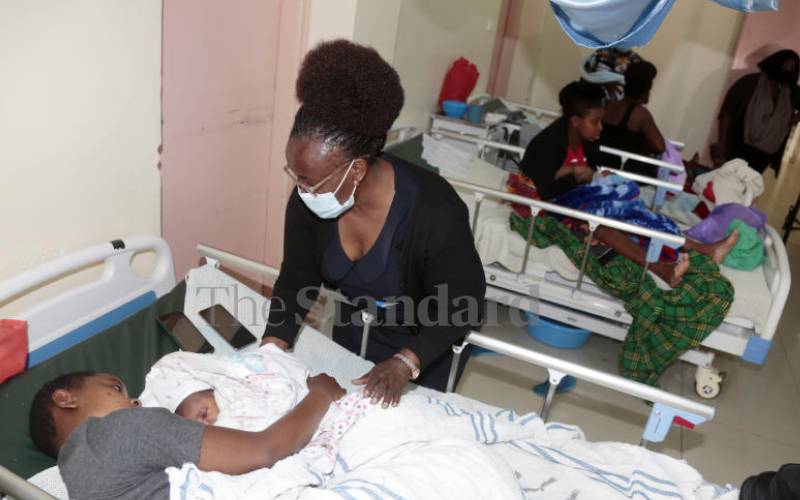×
The Standard e-Paper
Smart Minds Choose Us

Anne Kioko with her three-day-old baby, Alphonce Bianga, at Makueni hospital. August 10, 2021. [Boniface Okendo, Standard]
Kizito Mulili was knocked by a motorcycle and broke his tibia and fibula. He was hospitalised at the Makueni Level Five hospital where plates were placed on his leg.